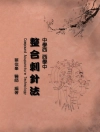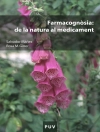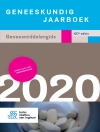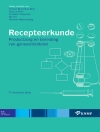This book is a unique overview of insights on the genetic basis of anti-diabetic activity, chemistry, physiology, biotechnology, mode-of-action, as well as cellular mechanisms of anti-diabetic secondary metabolites from medicinal plants. The World Health Organization estimated that 80% of the populations of developing countries rely on traditional medicines, mostly plant drugs, for their primary health care needs. There is an increasing demand for medicinal plants having anti-diabetic potential in both developing and developed countries. The expanding trade in medicinal plants has serious implications on the survival of several plant species, with many under threat to become extinct. This book describes various approaches to conserve these genetic resources. It discusses the whole spectrum of biotechnological tools from micro-propagation for large-scale multiplication, cell-culture techniques to the biosynthesis and enhancement of pharmaceutical compounds in the plants. It alsodiscusses the genetic transformation as well as short- to long-term conservation of plant genetic resources via synthetic seed production and cryopreservation, respectively. The book is enriched with expert contributions from across the globe.
This reference book is useful for researchers in the pharmaceutical and biotechnological industries, medicinal chemists, biochemists, botanists, molecular biologists, academicians, students as well as diabetic patients, traditional medicine practitioners, scientists in medicinal and aromatic plants, Ayurveda, Siddha, Unani and other traditional medical practitioners.
Table of Content
1 In vitro approach and quantification of ‘puerarin and genistein’ – Valuable antidiabetic compounds from Pueraria tuberosa.- 2 In Vitro Exploitation of Medicinal Plants for Continuous Supply of Antidiabetic Bioactive Compounds.- 3 Lower plants as potential source of antidiabetic compounds: The present knowledge and future prospects.- 4 Tissue culture mediated biotechnological intervention in Centella asiatica: A potential antidiabetic plant.- 5 In Vitro Approaches for Mass-Propagation of Stevia rebaudiana.- 6 Swertia chirayita, an endangered anti-diabetic plant: trends in biotechnological interventions.- 7 In vitro propagation and biotechnological improvement strategies of plants with high-intensity sweetener and anti-diabetic activities.- 8 In Vitro Culture Techniques and Metabolite Engineering for Enhanced Anti-Diabetic Secondary Metabolite Production.- 9 Saffron: A prized herb with therapeutic potential against diabetes.- 10 New Insights to Enhance the Desired Anti-Diabetic Compounds in Medicinal and Aromatic Plants Exposed to Abiotic Stress Factors.- 11 Boosting of bioactive secondary metabolites in antidiabetic plants through elicitation: A simple technology for better future.- 12 Rhizobium rhizogenes mediated genetic transformation of antidiabetic plants.- 13 Production of anti-diabetic lignans in flax cell cultures.- 14 Artificial seed development of selected anti-diabetic plants, their storage and regeneration: Progress and prospect.- 15 Cryopreservation of Anti-diabetic plants.
About the author
Dr. Saikat Gantait is an Assistant Professor in Genetics & Plant Breeding, as well as a Plant Breeder in Crop Research Unit, Directorate of Research, Bidhan Chandra Krishi Viswavidyalaya (BCKV) (State Agricultural University). Following completion of his Ph D in Biotechnology from BCKV, he gained advanced research experience leading a group to conduct fruitful research during working as Research Associate in DBT (Govt. of India)-funded project, followed by working as a Post-Doctoral Researcher in Universiti Putra Malaysia. He has guided/co-guided multiple MSc and Ph D students. His 14-year research works, so far, include molecular markers, plant tissue culture, polyploidy-induction, short-term (encapsulation/synthetic seed) and long-term (cryopreservation) conservation of medicinal and ornamental plant germplasms. In addition, he is acting as a Section Editor (Plant Biotechnology) of 3Biotech and Consulting Editor of Sugar Tech (journals from Springer Nature). Dr. Gantait has reviewed more than 130 manuscripts as an ad-hoc reviewer in 50 different eminent journals from Springer, Elsevier, Taylor and Francis, PLo S, Wiley etc. Dr. Gantait was awarded with Post-Doc fellowship from MOHE, Malaysia and successfully 2-year of advanced training at University Putra Malaysia on plant tissue culture and germplasm conservation. Till date, Dr. Gantait has published 120 articles/chapters in peer-reviewed journals and books (with cumulative SCI Impact Factor of 135), mostly as the first/senior author.
Dr. Sandeep Kumar Verma is an Associate Professor in Institute of Biological Science, SAGE University, Indore, India. He has more than 14 years of research and teaching experience in the field of biotechnology in India, Italy, South Korea, Turkey. He has 52 publications including peer-reviewed papers in SCI journals, book chapters and books. He is a recognized expert in the use of biotechnology, molecular biology, and nanotechnology techniques, giving many invited talks and presented papers at international conferences and symposia around the world. In addition, he is acting as an Editorial Board Member of 3Biotech (journal from Springer Nature). He has undergone advanced training courses on “A practical course in mammalian cell biology” (MAM-TUBITAK, Turkey), “RNA structure and function” (ICGEB, Italy), and “Quorum sensing in plant-associated bacteria” (ICGEB, Italy). Furthermore, he has received two best oral paper presentation awards in national conferences and one young scientist award in international conference. Besides, he has also received a memento for scientific achievement from the Rector, BAIBU, Bolu, Turkey. He is a reviewer of many international peer reviewed journals.
Dr Amit Baran Sharangi is a Professor at Bidhan Chandra Krishi Viswavidyalaya (Agricultural University) and is involved in teaching, research and extension for about 23 years. He completed his Doctoral degree from BCKV and Post-Doctorate from the University of Melbourne, Australia. He has received his scientific training from IISR, IIHR & ARO (Tel Aviv, Israel). His areas of expertise are herbs, spices & Medicinal and aromatic plants. He has done research in several laboratories of Australia, USA and UK. Prof Sharangi has several international awards including Fulbright (USA), INSA-RSE Visiting Scientist (UK), ENDEAVOUR Award (Australia), Marquis Who’s Who (USA), Young Achievers Award (SADHNA), Higher Education Leadership Award, Outstanding Scientist Award, Bharat Ratna Mother Teresa Gold Medal Award, etc. He is a life member of several academic bodies and Fellow of eight prestigious academies/societies. He has published about 85 peer-reviewed papers, 22 books from Springer Nature, Taylor & Francis, Nova Publisher, CRC Press etc and numerous book chapters within his subject area. He is also associated with 50 journals worldwide as editor-in-chief, regional & technical editor, editorial board member and active reviewer. He has administrative experience for four years as Head of Department, chaired several sessions of national and international conferences, executed six projects so far as PI and Co-PI, developed as well as restructured PG courses as BSMA committee member (DG, ICAR, Govt of India) at national level.












